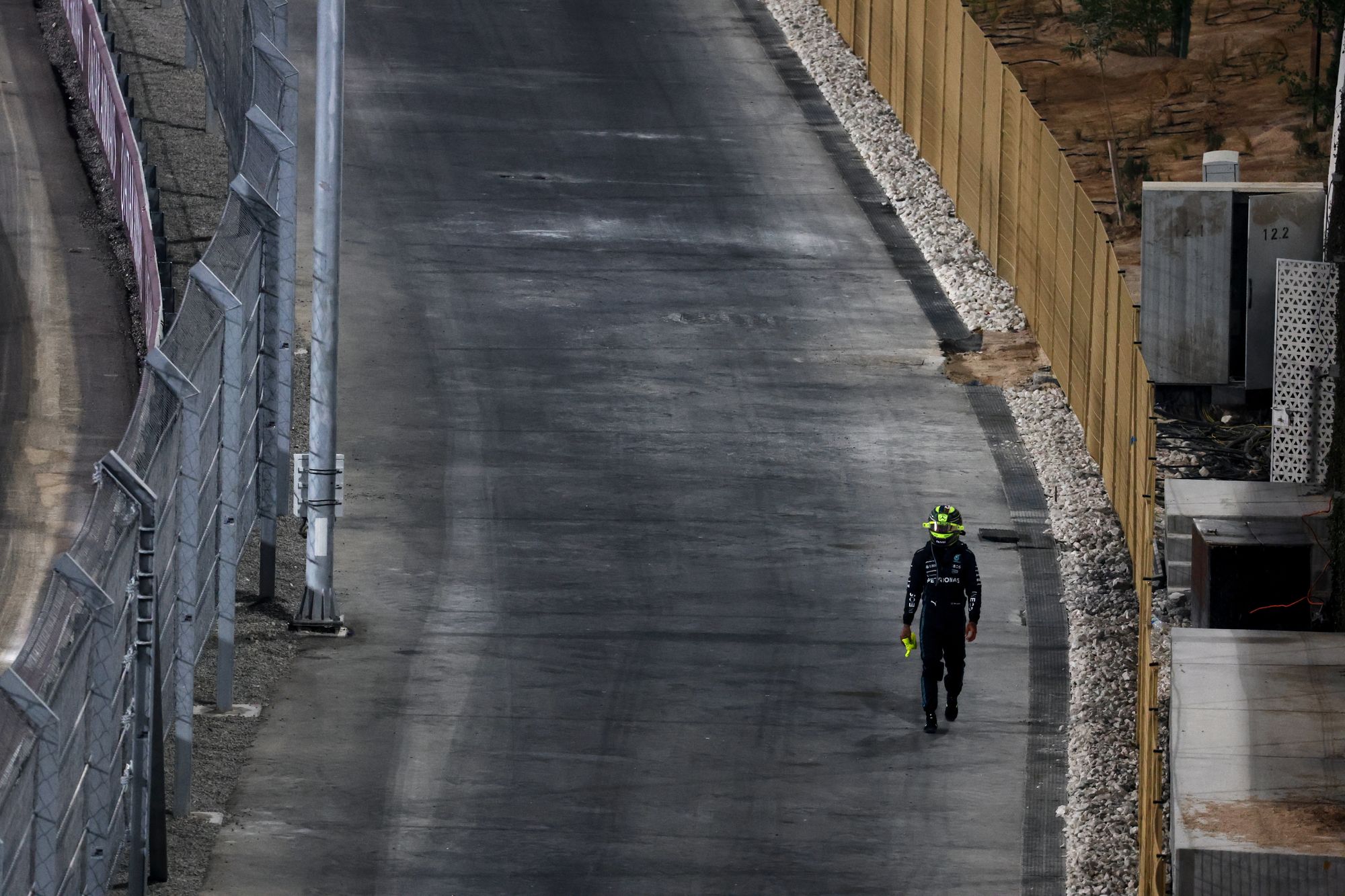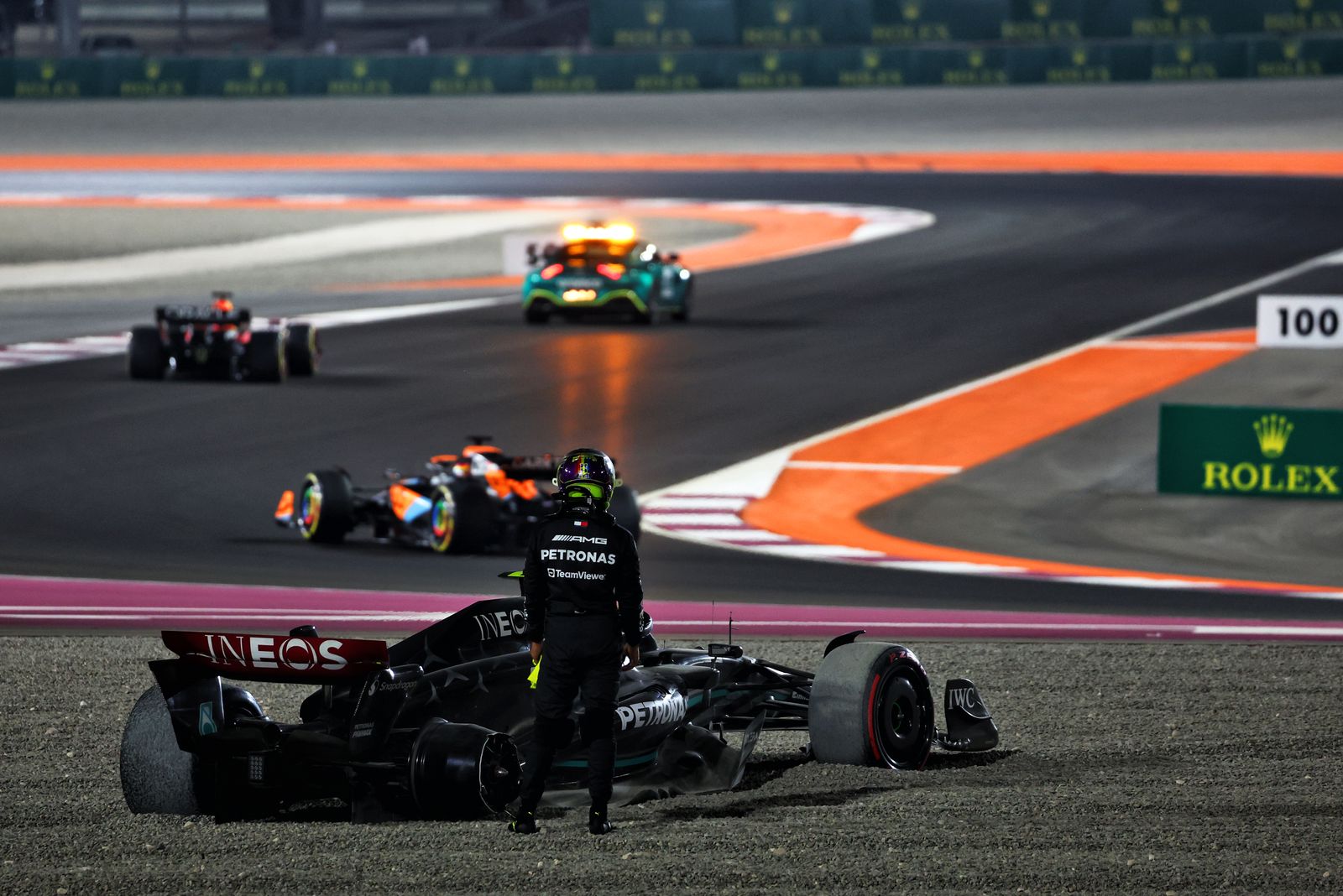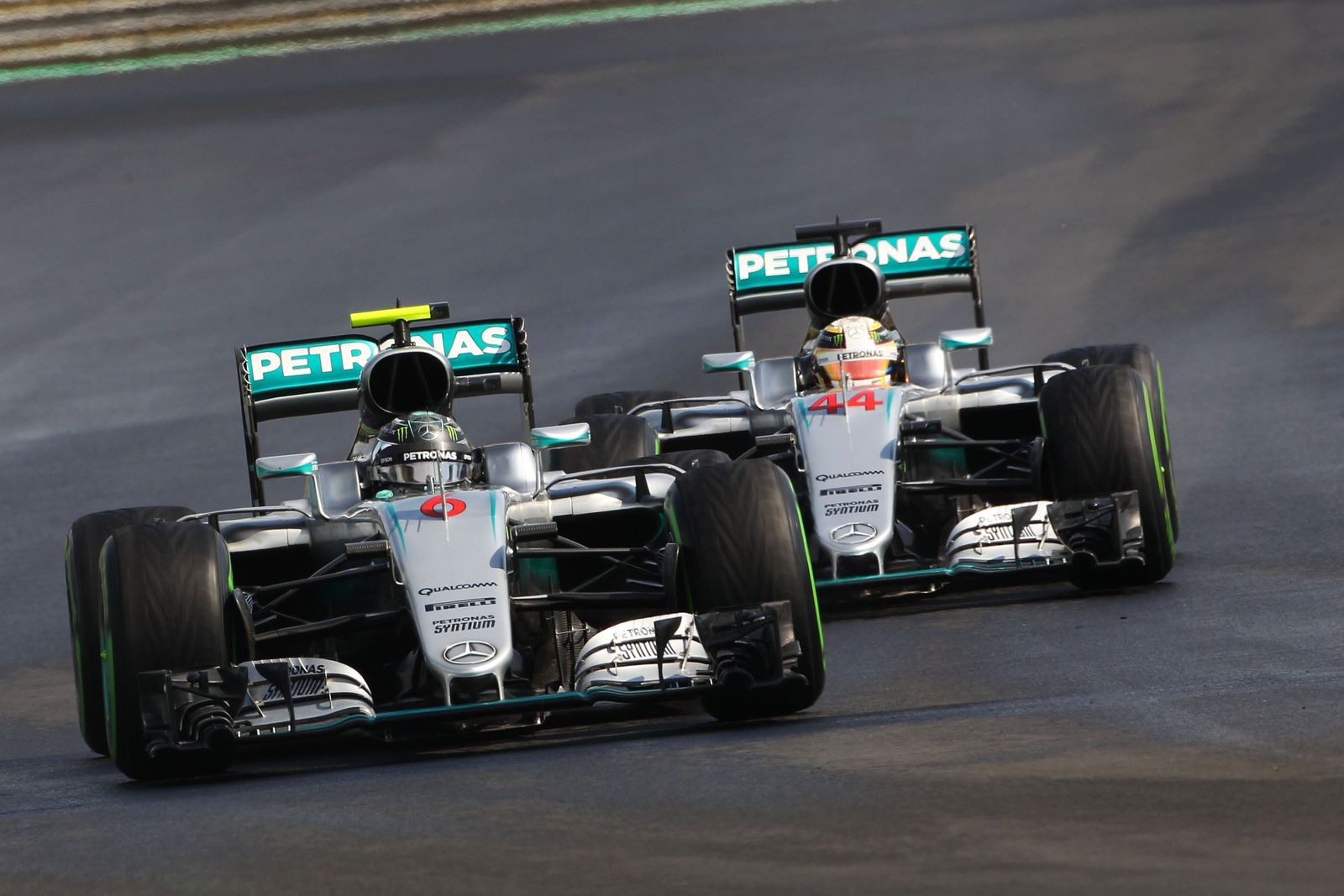Up Next

Lewis Hamilton was right to rubbish claims that he was "singled out" by the FIA over the Qatar Grand Prix track-crossing incident but equally correct to criticise the governing body for its "poor communication" that unnecessarily escalated what should have been a simple matter.
Last weekend the FIA announced it was "revisiting the incident" in which Hamilton crossed the Lusail track after the clash with Mercedes Formula 1 team-mate George Russell that caused him to retire on lap one.
The stewards had already handed Hamilton a reprimand and €50,000 fine - €25,000 of it suspended - on the Sunday of the race before the governing body opted to take a fresh look.
"The FIA notes that Lewis was apologetic during the subsequent stewards hearing into the incident and acknowledged that the crossing was a serious safety breach," said a statement issued to media a week on from the event.
"However, in view of his role model status, the FIA is concerned about the impression his actions may have created on younger drivers."
The apparent framing of the reasoning being Hamilton's "role model" status caused a stir and led to suggestions that Hamilton was being unfairly singled out.
Hamilton's verdict
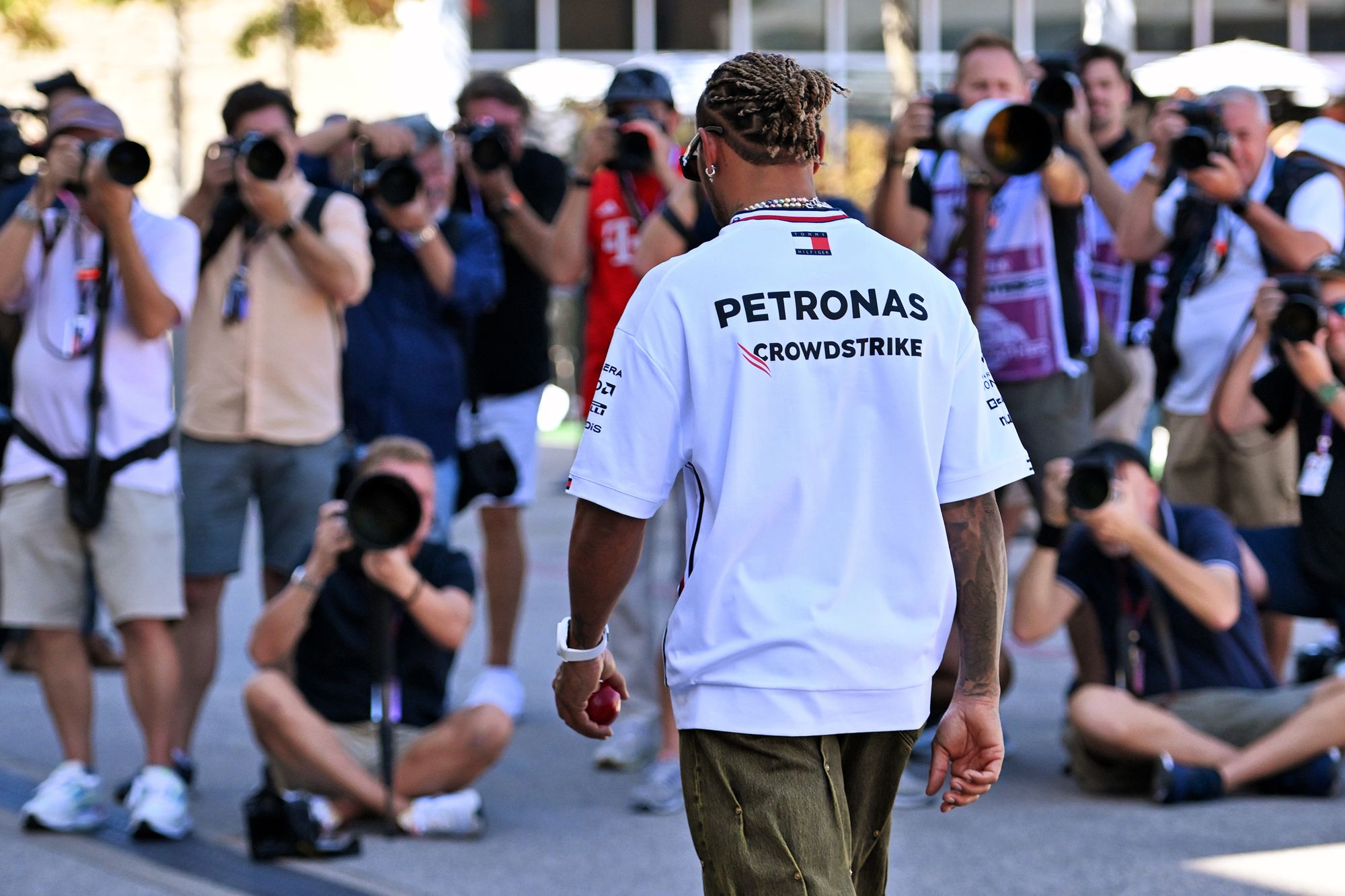
That theory was put to Hamilton a few days after the FIA's statement on Thursday at Austin ahead of the United States GP.
"No I don't think I was singled out," was Hamilton's reply.
"I think ultimately it was just poor communication, I don't think what they had said is exactly what they meant.
"What they meant is that they're going to look into how they can tackle those sorts of things moving forward to make sure it doesn't happen.
"There was a karting incident recently where a kid was hit so we really need to make sure that we're continuously focusing on safety and I think that's at the root of it.
"They probably need to speak to their PR agent to do a better job."
The karting incident Hamilton is likely referring to resulted in 22-year-old British karter Joe Turney being hospitalised with leg injuries after he was struck by another kart while attempting to push his stricken kart back onto the track during the World Karting Championship final at Franciacorta.
Hamilton agreed that it was "important to send the right message, particularly for the younger drivers throughout the ages, that [this] isn't the thing to do" and took full responsibility for the incident.
While bemused by the FIA's "poor communication", Hamilton didn't appear to be annoyed by the actual root of the FIA's decision to 'revisit' the incident and punishment.
That's because he knows crossing the track wasn't the right thing to do: "In the heat of the moment it was the wrong decision".
The real problem
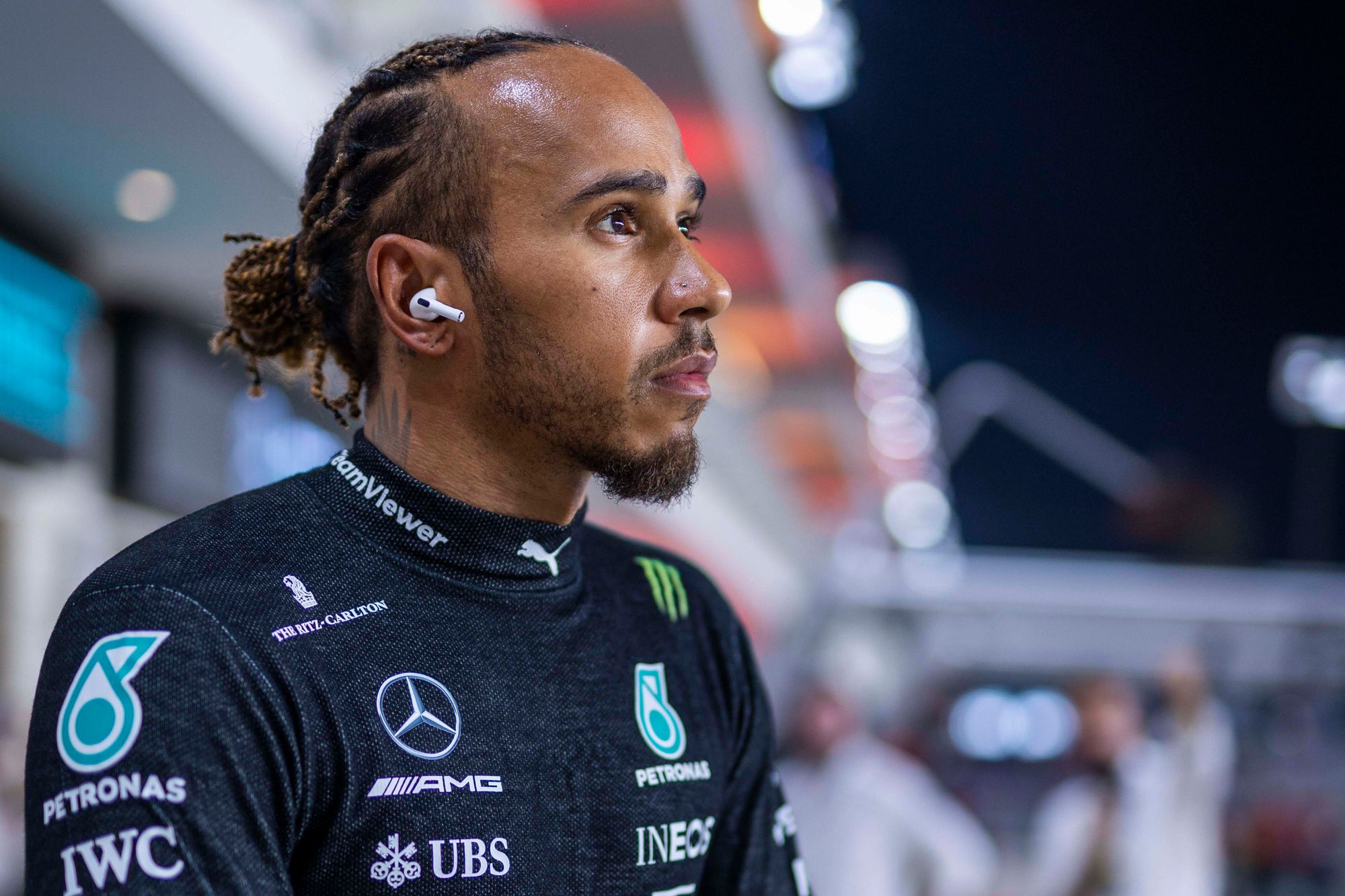
The only problem Hamilton had was the way the FIA communicated it, a point echoed on the latest episode of The Race F1 Podcast.
"It's come off terribly and it's been really badly handled even if that wasn't the intention," Glenn Freeman said.
"What they meant was that F1 drivers are role models, so we have to clamp down on this stuff because we don't want people at lower levels - be that at karting or all the way up the ladder - thinking that if you fall off and you're stood in a gravel trap on the outside of the corner you can go 'I'm going to cross the track because Lewis Hamilton did it'.
"That's understandable but the statement they sent out doesn't convey that at all and unfortunately is just the latest example of the FIA handling something quite straightforward absolutely terribly."
Not only was the "role model" aspect of the statement confusing but the very fact the FIA was reassessing the incident sparked the reasonable assumption that it was looking to change Hamilton's punishment for this particular transgression.
This appears not to be the case.
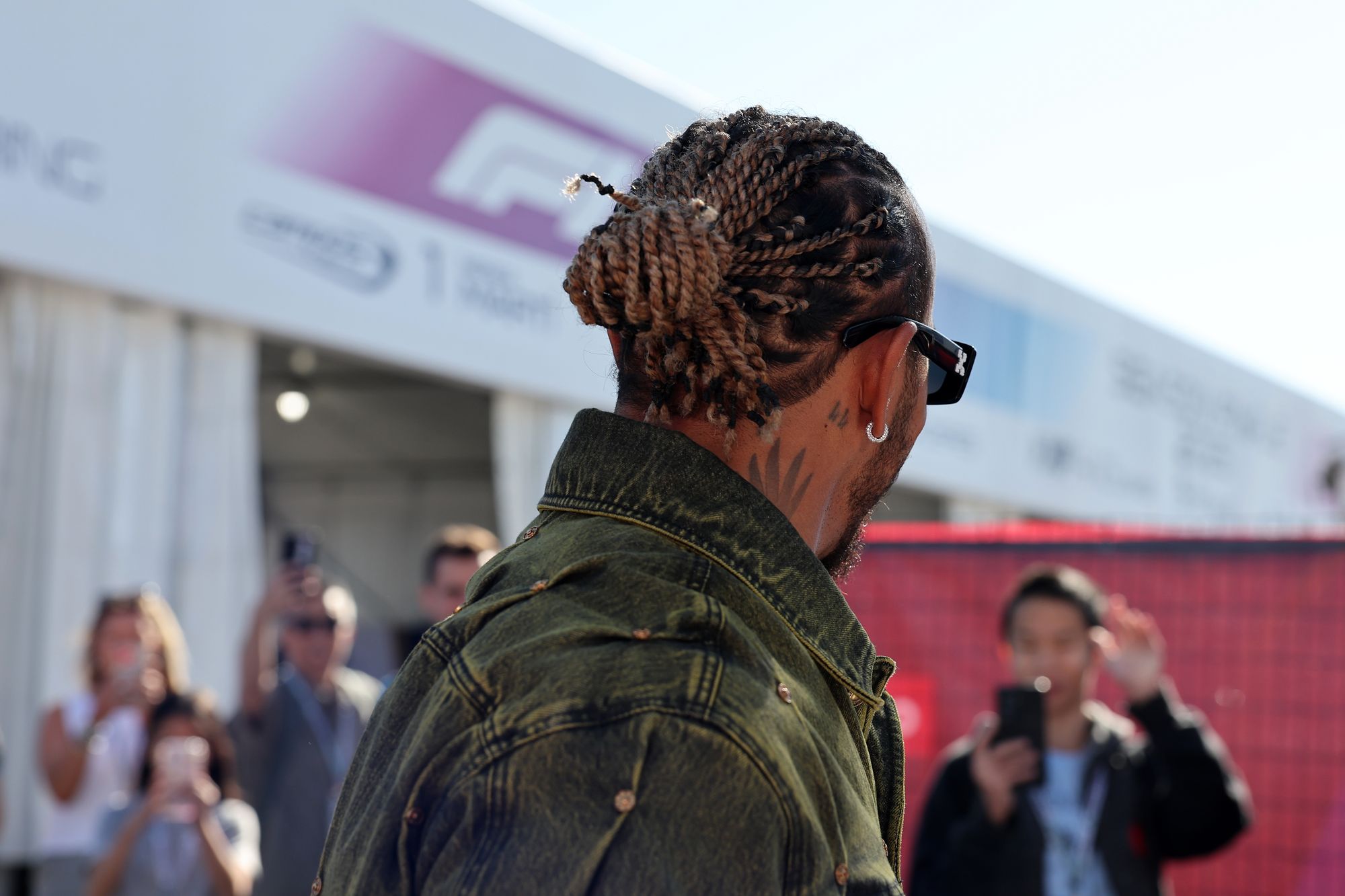
"They don't even want to give Hamilton a bigger penalty, which makes sense because they're having a look at it as a case study for future punishments," Edd Straw said.
"But why you'd put something out that doesn't say that but that appears to single out Hamilton, that implies...actually any reasonable person would assume they're looking at changing or upping the punishment from a reprimand and a fine.
"The FIA has got a little bit better at communication recently but this was really odd because the whole point of a statement is to make your position clear and they represented what wasn't their position, so of course they've quite rightly got criticism for it.
"It's quite an important rule and a sensible thing to clamp down on. It should be treated seriously.
"If they'd said 'well we were thinking about this and maybe for future we might want to clamp down on it a bit, aware that all F1 drivers are role models, so let's tidy that up', then great.
"But they didn't, they said something that looks completely different and switched the whole conversation to make it look like they were targeting Hamilton."
An unnecessary mess
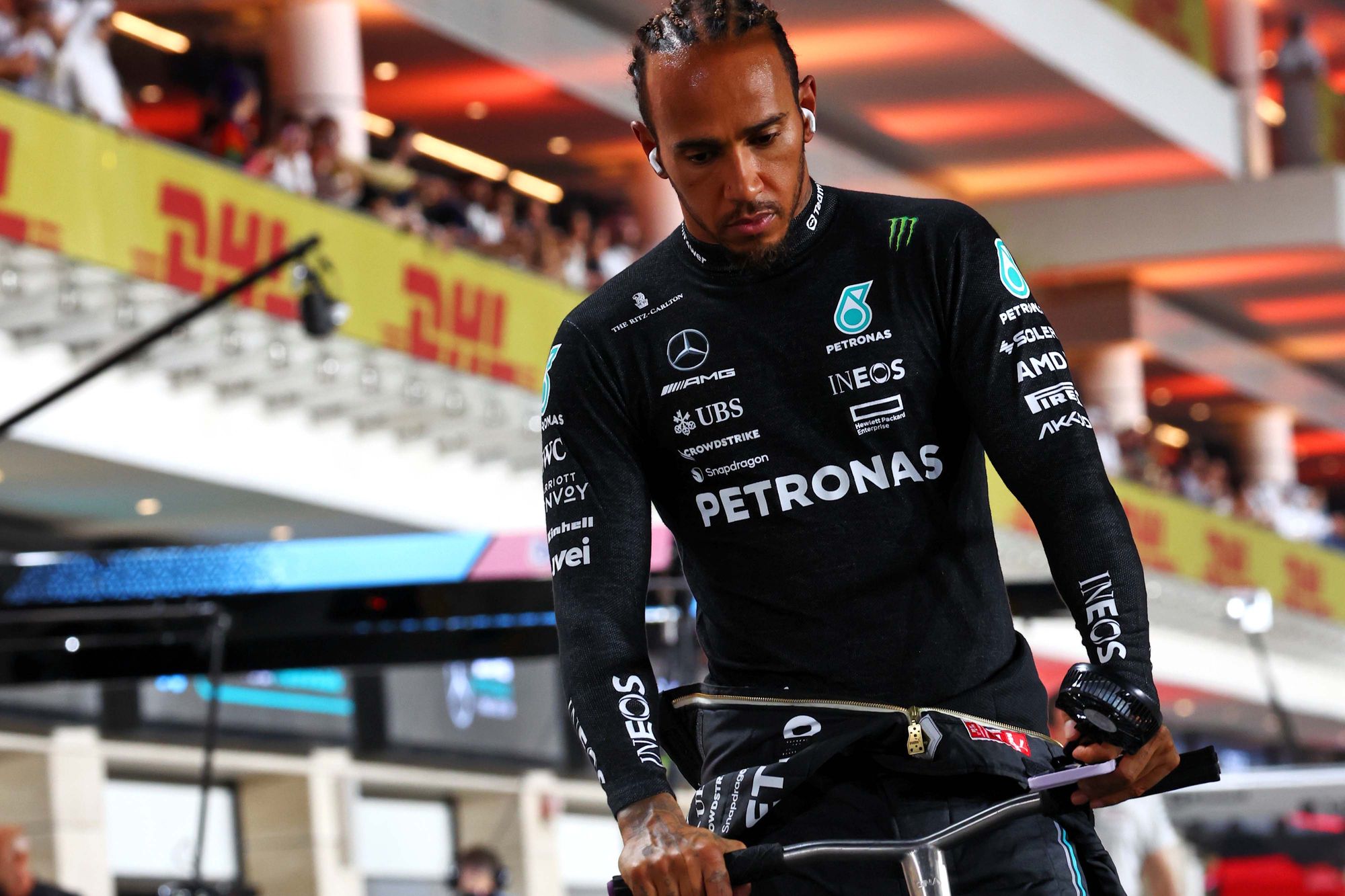
Ben Anderson was unconvinced by the tangible impact of Hamilton's actions and felt the FIA never needed to go public with its investigation.
"I think it's pointless posturing," Anderson said.
"Seriously, was anyone watching that race thinking 'Oh Lewis crossed the track, I'm going to do that next time'?
"I don't think anybody even noticed until the FIA itself drew attention to it and he was summoned to the stewards and the stewards spoke to him.
"He got a reprimand and a fine, it was dealt with. So the FIA is now saying 'OK actually we didn't do a good enough job in dealing with that, we need to look at it again' and then you draw unnecessary attention to it.
"Then on top of that, you botch the statement and make it look like you're targeting F1's most famous driver individually rather than looking at the actual specifics of when should you cross the track. How should you do it? Should we up the punishments or not?
"All the publicity was completely unnecessary. They could have done that revision behind closed doors, which they often do with minor rule tweaks.
"I don't get it, it just looks like a silly mess created by the FIA unnecessarily."


